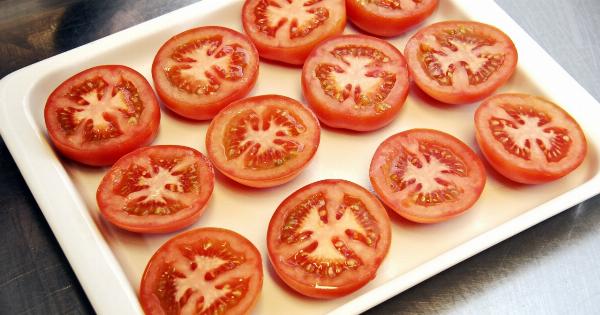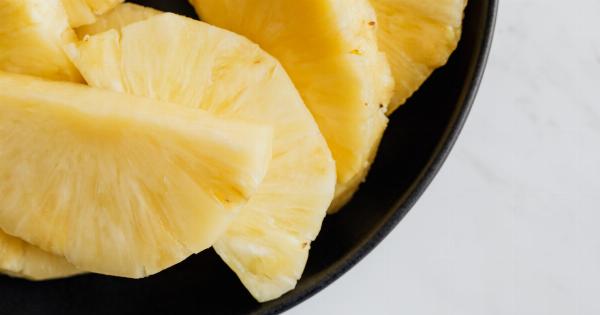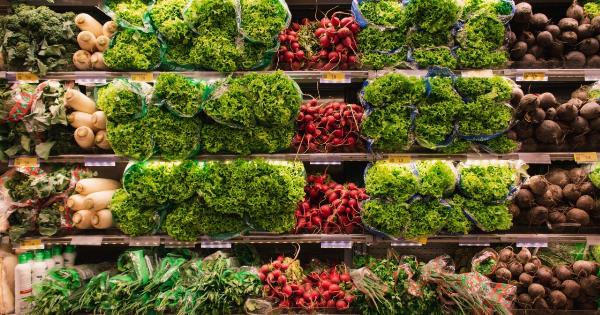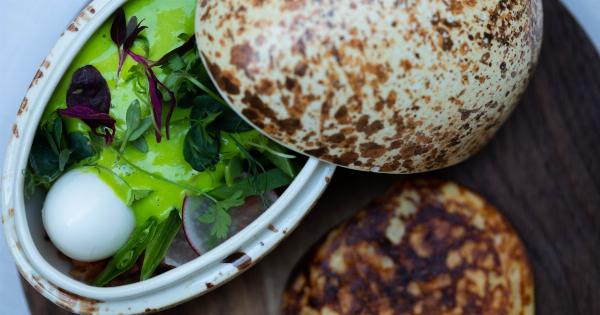When it comes to maintaining a healthy diet, vegetables play a vital role. They are packed with essential nutrients and are generally low in carbohydrates, making them an excellent choice for individuals following a low-carb diet.
In this article, we will explore some of the healthiest vegetables with the lowest carbs, along with their nutritional benefits. Let’s dive in!.
1. Broccoli
 .
.
Broccoli is a nutrient powerhouse that is not only low in carbs but also high in fiber. It is an excellent source of vitamins C, K, and A. Additionally, broccoli contains various antioxidants that can help support a healthy immune system.
2. Spinach
 .
.
Spinach is a leafy green vegetable that is incredibly nutritious and low in carbs. It is loaded with vitamins K, A, and C, as well as iron and calcium.
Regular consumption of spinach has been associated with improved eye health and a reduced risk of chronic diseases.
3. Bell Peppers
 .
.
Bell peppers, whether red, green, or yellow, are packed with vitamins and are a great low-carb vegetable option. They are an excellent source of vitamin C, which helps boost immunity and promote healthy skin.
Bell peppers also provide some fiber, making them a nutritious and crunchy addition to your meals.
4. Cauliflower
 .
.
Cauliflower is a versatile vegetable that can be used as a low-carb substitute for high-carb foods like rice and potatoes. It is rich in vitamins C and K, as well as fiber.
Cauliflower is also known for its anti-inflammatory properties and potential cancer-fighting abilities.
5. Zucchini
 .
.
Zucchini is a summer squash that is low in carbs and high in water content. It is a great source of potassium, vitamin C, and antioxidants.
Zucchini can be used in various dishes, such as zucchini noodles or grilled zucchini, to add a healthy and low-carb element to your meals.
6. Asparagus
 .
.
Asparagus is a delicious vegetable that is low in carbs and high in nutrients. It is a good source of folate, vitamin K, and antioxidants like lutein and zeaxanthin, which are beneficial for eye health.
Asparagus also contains a unique compound called asparagusic acid, which has been studied for its potential anti-inflammatory properties.
7. Cabbage
 .
.
Cabbage is a cruciferous vegetable that is low in carbs and packed with health benefits. It is an excellent source of vitamin C, vitamin K, and fiber. Cabbage also contains compounds called glucosinolates, which can have anti-cancer properties.
Incorporating cabbage into your diet can help support digestion and promote overall well-being.
8. Brussels Sprouts
 .
.
Brussels sprouts are small, nutrient-dense vegetables that are low in carbs. They are an excellent source of vitamins C and K, as well as fiber.
Brussels sprouts contain antioxidants that can help protect against cell damage and support the body’s natural detoxification processes.
9. Kale
 .
.
Kale is a leafy green vegetable that is widely recognized for its exceptional nutritional profile. It is low in carbs and packed with vitamins A, C, and K. Kale is also rich in antioxidants and may have anti-inflammatory properties.
Including kale in your diet can provide various health benefits, including improved heart health and eye function.
10. Green Beans
 .
.
Green beans, also known as string beans, are a popular low-carb vegetable. They are a good source of vitamin C, vitamin K, and fiber. Green beans contain carotenoids, which are beneficial for eye health.
Additionally, they are rich in antioxidants that can help protect against cell damage and contribute to overall well-being.
Conclusion
Incorporating low-carb vegetables into your diet is an excellent way to promote overall health and maintain a balanced lifestyle.
Broccoli, spinach, bell peppers, cauliflower, zucchini, asparagus, cabbage, Brussels sprouts, kale, and green beans are just a few examples of the healthiest vegetables with the lowest carbs. These nutrient-dense vegetables provide essential vitamins, minerals, and fiber, supporting various bodily functions and reducing the risk of chronic diseases.



























